275 MacLaren Street, Ottawa, ON K2P 0L9
Research Start-up Summary and Abstract:
This project will explore the tensions between Indigenous and Western notions of successful education, and how these tensions impact the teaching and evaluation of Indigenous students in provincially-funded schools in Ontario. This project will conduct a case study of the Aboriginal Education Strategy is the Alternative Secondary School Programs within Native Friendship Centres Program (ASSP) in Ottawa, Ontario to explore the research questions.
Ontario Federation of Indigenous Friendship Centre (OFIFC) reports that the ASSP has been found to play a crucial role in the educational success of many “at-risk” urban Indigenous youth. However, it is important to determine whether the ASSP promotes success and positive learning outcomes as defined by Indigenous peoples themselves. Existing program evaluations focus almost exclusively on whether the ASSP is helping students achieve Western standards of success. The integration of Indigenous pedagogies must be extended to assessment and evaluation as well, since assessment approaches are part of an overall pedagogical framework. If Indigenous teaching and learning strategies are used in the ASSP, the only accurate way to evaluate the learning achieved through these pedagogies is by using assessment approaches grounded in the same pedagogies.
Collaborating Friendship Centre and/or other urban Aboriginal organization:
Odawa Native Friendship Centre
Urban Aboriginal Alternate High School Program (UAAHSP)
Research Questions:
According to Indigenous knowledge-holders, what is the meaning of educational success, which learning outcomes are desired, and how should learning be assessed? Does the pedagogy of the ASSP encourage success and positive learning outcomes as defined by Indigenous peoples themselves, and how can assessment and evaluation approaches be adapted to reflect Indigenous theories of educational success?
Main contact:
Amy Champagne, Trent University
[email protected]